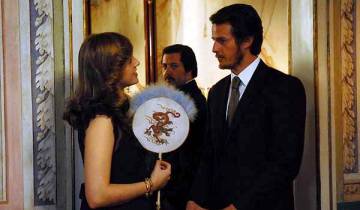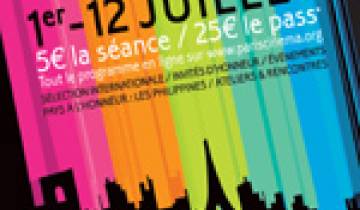Oscars 2021: Seen and Unseen
By Alejandro Varderi
This year's ceremony will go down in the annals of the Academy as the most suigéneris, not only due to the circumstances of its performance, as a result of the global emergency of Covid-19, but also due to the lack of motivation of the participants. Something that could be seen in the banality of the acceptance speeches, full of platitudes and pamphlet slogans aimed at "satisfying" ethnic minorities. As if Hollywood had wanted to put them all in the same bag and give them the statuettes in a group now, when practically no one has seen the award-winning films, and much less on the big screen, in an act with very little public and even fewer viewers.
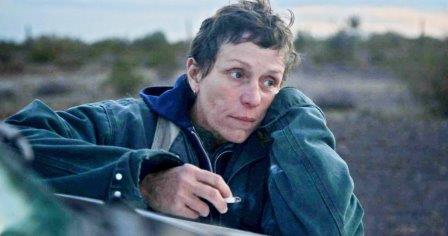
Indeed, the young Chinese director Chloé Zhao won with "Nomadland" a double statuette, for direction and best film, while the Korean actress Youn Yuh-jung won the award for best supporting actress for "Minari", directed by Korean-born North American filmmaker Lee Isaac Chung. On the other hand, the British actor of Ugandan origin Daniel Kaluuya, received the Oscar as best supporting actor for his work in the film “Judas and The Black Messiah”, directed by the African-American director Shaka King. And African-American producer and philanthropist Tyler Perry was recognized with the Jean Hershold Humanitarian Award for his work on behalf of children in need.
A part of Union Station, the central train station in Los Angeles, was adapted as a space for the ceremony, which was attended only by the nominated actors, seated at spaced tables and protected with masks when not on camera. Indeed, the production of the anemic show, conceived by director Steven Soderbergh, mirrored the ceremonies of the early decades, when the Oscars were held in a banquet hall, with the nominees dining at tables similar to those.
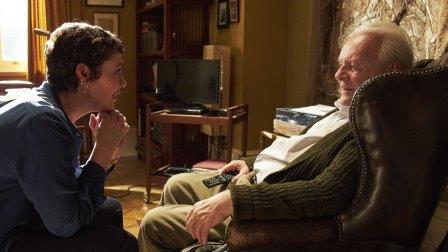
Some of the stiffness of that time was reflected in the development of the ceremony, which at no time flowed spontaneously but rather stagnated from the initial start, with interpretations of the nominated songs prerecorded to subtract any hint of naturalness. This was worsened by the politicization and hypocrisy of the so-called “inclusion” which, of course, is not such, since the gap between extreme poverty and unlimited wealth continues to increase exponentially; as well as racism, homophobia and sexism on a global level.
And it is that if in the past the Oscars were an ode to escapism and cinematic illusion, today they are a platform where to shout grievances and air grievances in order to generate another type of illusion: compassion towards those who suffer injustices due to their skin color , your gender or your life choice. Even the opening words, given by the African-American actress Regina King about the consequences of the pandemic, suffered from the hopeful tone for those who still do not have access to vaccines or the minimum conditions for survival in less privileged societies.
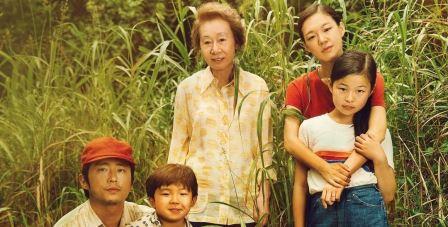
The media power of digital platforms was also felt in the selection of nominated films, taking the major studios out of the limelight. In this sense, Netflix led the night with 36 nominations divided between films such as “Mank” directed by David Fincher, “The Trial of the Chicago 7”, directed by Aaron Sorkin, and “Ma Rainey's Black Bottom” by George C. Wolfe. "Nomadland" premiered on Hulu, director Darius Marder's "Sound of Metal", winner of the award for best editing and sound, debuted on Amazon, and "Judas and the Black Messiah" aired from HBO.
All this augurs a very different future for Hollywood cinema, which will have to bend to the demands of the digital age in order to survive. A reality that the pandemic has made more tangible, by further separating those who have access to the internet, and therefore can work remotely and live virtually, from those who must go out to the streets to obtain their daily livelihood, with the consequent risk getting sick or losing their jobs if they don't.
"Nomadland" addresses many of these concerns in the future of North Americans who subsist as the ancient nomadic tribes, without roots and without borders, moving in their trucks from one point of the country to another. Fern (Frances McDormand, Oscar for best actress) loses her job in the industrial sector and decides to transform her truck at home to go to work where she is hired temporarily, living in communities with people in similar situations. This allowed the director to show the reality of those who exist on the margins of the system, creating temporary emotional ties with those who "will meet again at some other point along the way," as indicated by one of the protagonists and followers of this way of survival.
The combination of the fictional with the documentary, the use of non-professional actors and the camera work capable of contrasting the large panoramas of the landscape with the closed frames of the protagonist in her house on wheels, gave dynamism to the film and allowed the viewer value the personal over the commercial. Thus, the premiere of the film was held outdoors in one of these communities and those who lived there were invited to participate by relating their personal experiences, together with the director and the actors. This generated a high degree of complicity, emphasized by the behavior of those who were involved in the film; especially McDormand, who included in his motorized home cups, plates and other mementos of his own family.
The strength of the family and its influence on the behavior of each of its members had in "Minari", winner of the Golden Globe for best foreign film and nominated for the Oscars for best film, an emotional and personal development, by the hand of its director Lee Isaac Chung, nominated for best director, who relived his childhood on an Arkansas farm with her. The film revolves around the ups and downs of a Korean family transplanted to deep America to dedicate themselves to growing vegetables and herbs from their country. The use of Korean and English gave the production a double belonging, although it did not delve into the differences between the two cultures; especially as far as the perception of the other is concerned.
In fact, North American racism, especially in the southern states, was limited to the anecdotal, rather the film privileging the interaction between family members. Here the power of the short story and a good use of humor were key in the development of the diegesis. In the director's words: “I grew up feeling that the great obstacles to overcome had more to do with surviving together as a family, and less with the external relationships we had with the community. Racism existed and I have experienced some terrible incidents, but when I think back to those days, it is more about the farm and the difficulties of getting along with each other. "
The contrast between the exterior scenes and the interior shots activated the filmic action, allowing the audience to confront their fears and struggles with the environment, in addition to leading them to return to personal dynamics with the family group and its members. Something that "The Father" - directed by the French director and author Florian Zeller from his own play - synthesized in the relationship between a father with a principle of dementia - played by Anthony Hopkins, Oscar for best actor - and his daughter (Olivia Colman, nominated for best supporting actress).
Zeller managed to successfully transfer his work from the stage to the screen while maintaining the density of the dialogues and, especially, the father's monologues, obtaining the Oscar for best adapted screenplay. The use of the omniscient camera, going through the different rooms of the apartment from the eye of the protagonist to orient himself through the labyrinthine world of the unconscious, created the cinematic illusion within an atmosphere of great chromatic richness, enhanced by a cinematography that privileged warm colors to soften the transit of life in fullness, towards the unknown of losing control over oneself. Something that Hopkins himself felt very closely: “I knew how to do it because now I am that old. I am 83 years old and I understood the role very well. It was very easy to act ”.
Another nominated film that revolved around a male figure was "Mank", with Gary Oldman (nominated for best actor) in the role of Herman J. Mankiewicz, when he had the responsibility of writing, together with Orson Welles, the screenplay for "Citizen Kane" (1941). The author's inner demons and his close relationship with Randolph Hearst (Charles Dance) and Marion Davis (Amanda Seyfried, nominated for best supporting actress) are explored in a film that recovers Hollywood from the golden age.
The black and white of the cinematography - which was made with the statuette -, the depth of the frames, the use of the chopped shot and the wide angles mirror the techniques of the film by Welles (played by Tom Burke), with whom Mankiewicz entered disputed, as he maintained that he had been the one who wrote most of the script (the only Oscar that was awarded to the film at the time).
The raccontos to the past give the director the opportunity to place Mankiewicz in the context that allowed him to write it, dispelling any shadow of doubt as to its authorship. His contact with the owners of the big studios, his closeness to Hearst and Davis - he was frequently invited to Saint Simeon, the huge mansion of the publicist - and the knowledge from inside the backdrops and intrigues of Hollywood, provided him with the experience that Welles, arriving from New York to Hollywood for the first time he had not, and without which it would have been impossible to write the script; despite Welles insisting on being the main author, thus betraying the trust Mankiewicz had given him.
Two equally nominated films that speak of betrayals, although less personal, were "The Trial of the Chicago 7" and "Judas and the Black Messiah." The first recreates the persecution of seven prominent activists, accused of inciting violence against the 1968 Democratic National Convention in Chicago, for protesting the Vietnam War.
The film by Aaron Sorkin, also author of the screenplay nominated for the Oscars for best original screenplay, maintained the tension of the clashes between the judicial establishment and activists, through an intense staging that emphasized the games of shot-against-shot, with a agile camera work especially in the scenes of confrontations between civil society and the repressive forces of the State. A very current reality, not only in the United States but in many other nations, in the face of the advance of absolutism and intolerances against anyone who does not bow to the designs of those who hold power.
The parallels between the past and the present were exposed very truthfully in the composition of the frames inside and outside the Court where the activists were tried, with the news cameras, the protesters with their banners shouting their slogans and the bodies of security behind their shields and weapons. Or, in the director's words, referring to very close cases of repression, especially against people of color: “with the shooting of Breonna Taylor and Ahmaud Arbery and the death of George Floyd, the protests dissolved with tear gas and sticks, and accusations on the part of the government to brand those who protested as anti-American, anarchists and communists when, in reality, they are patriots ”.
"Judas and the Black Messiah", meanwhile, focused the betrayal of which Fred Hampton (Daniel Kaluuya) was the victim at the hands of William O'Neal (Lakeith Stanfield, nominated for best supporting actor), an informant for the FBI, who he sought to get rid of the charismatic leader of the Black Panthers as "the greatest danger to our national security." As in "The Trial of the Chicago 7", this film takes us back to a present of police brutality, racism and struggles of oppressed groups to free themselves. And here it is interesting to highlight the important role that the Black Panther movement played in raising awareness of race and empowering the North American black population, during the turbulent but positive for the minorities, the XNUMXs of the last century.
The film by Shaka King, who also co-wrote the original Oscar-nominated screenplay with Will Berson, goes back to those years and incorporates documentary material of the time into the diegesis, bringing to our contemporaneity the deep racial division of a not-so-long time. Way back to the decades when African-Americans were publicly lynched like a show. At the same time, the film educates the new generations and recovers the important role that the generation of the sixties had in giving them social equality and more opportunities to educate the population of color. According to King: "many see the film as a potential tool to educate the younger generation." Something that Daniel Kaluuya himself experienced when preparing his character, as he felt that “Fred was speaking through me. At that time he was empowering the people. "
The careful production, the use of large close-ups, a photography that privileged the chiaroscuro seeking to recover the gloom of historical events, and a cinematography very adjusted to the time, gave the film its power to magnetize the attention of an open spectator. to differences. A certainty that this ceremony, seen and unseen, tried to convey, but failed. However, we are left with a solid set of films that pave the way for a new Hollywood, very different from the one left behind by the pandemic.

